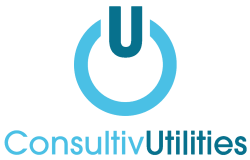For the UK’s most energy-intensive industries—manufacturing, chemicals, heavy transport, food processing, and large-scale industrial operations—energy has become more than a utility cost; it’s now a boardroom-level risk. The rapid evolution of energy markets, combined with net-zero obligations and technological transformation, is forcing major users to rethink not just how they consume energy, but how they secure, strategise, and futureproof it.
As highlighted in PwC’s 2025 UK Energy Survey, energy cost volatility, rising consumption, and decarbonisation pressures are now defining factors in corporate decision-making. Yet while the challenges are significant, they also present an opportunity for businesses to become leaner, smarter, and more sustainable.
The triple threat facing energy-intensive industries
Energy-intensive businesses are contending with a convergence of three major forces:
-
Volatile pricing and economic pressure
Energy prices are more unpredictable than ever. Nearly 90% of UK businesses reported that volatile energy costs had a direct impact on their profitability in the past year. For energy-intensive users—where energy may account for 20–40% of operational expenditure—this unpredictability erodes margins and undermines confidence in forward planning.
-
Increasing demand driven by tech and electrification
The industrial pivot to AI, robotics, and electrified fleets is not just a matter of staying competitive—it’s increasing energy consumption across the board. Over 80% of companies surveyed expect their energy use to rise in 2025. For firms already on the edge of grid capacity or burdened by inefficient infrastructure, this represents a significant operational risk.
-
Net zero and sustainability commitments
More than 45% of UK businesses now aim to reach net zero by 2030. But for heavy industries, balancing these aspirations with commercial survival isn’t easy. 37% of businesses have already delayed decarbonisation due to energy cost concerns, underscoring a growing tension between sustainability objectives and financial realities.
The practical barriers to energy transformation
Despite the clear need for action, many businesses are finding it difficult to make meaningful progress. Three major obstacles stand out:
-
Capital cost of infrastructure upgrades
Energy-efficient equipment, digital monitoring systems, on-site generation—these require upfront investment that not every organisation is ready to commit. Two-thirds of businesses surveyed cited high capex requirements as their top barrier to energy transformation.
-
Limited data transparency
Too many organisations still rely on historical or invoice-based energy tracking. Without granular, real-time data, it’s nearly impossible to optimise consumption patterns or benchmark efficiency across sites.
-
Complex regulatory environment
From ESOS and SECR compliance to emerging carbon pricing mechanisms, the UK’s regulatory landscape is dense and fast-moving. Keeping up—and ensuring compliance—is a challenge even for well-resourced teams.
Strategic solutions for building energy resilience
At Consultiv Utilities, we work with major energy users across the UK to help them overcome these obstacles and seize control of their energy future. Based on our experience and sector insights, here are five key strategies:
1. Deploy smart energy management systems
Digital tools that offer real-time energy monitoring and reporting are no longer optional—they’re essential. Advanced analytics can pinpoint wastage, automate demand response, and guide load-shifting strategies that directly cut costs and emissions.
2. Re-evaluate energy procurement tactics
A one-size-fits-all energy contract is rarely fit for purpose in today’s market. Businesses should consider flexible purchasing strategies, hedging options, and demand forecasting models that match their operational footprint and risk appetite.
3. Explore on-site generation and storage
Installing solar PV, CHP (Combined Heat and Power), or battery storage solutions can reduce reliance on volatile wholesale markets. Moreover, they support ESG objectives and often offer attractive returns under the right financing structures.
4. Prioritise low-cost efficiency wins
Simple steps—like HVAC tuning, LED upgrades, or optimising compressed air systems—can offer rapid returns. For many energy-intensive users, up to 10–15% of energy consumption is typically “low-hanging fruit” ready for savings with minimal disruption.
5. Leverage external expertise
Working with energy consultants like Consultiv Utilities gives businesses access to deep market knowledge, bespoke procurement strategies, and tailored decarbonisation pathways. External partners can also help unlock funding, grants, or tax incentives that offset investment costs.
The role of leadership in energy transition
Energy management is no longer just the responsibility of operations or facilities managers. Boards and executive teams must take ownership of the energy agenda. This means setting clear targets, embedding energy KPIs into wider business strategies, and allocating resources appropriately.
When leadership takes energy seriously, the effects cascade through the organisation—driving cultural change, cross-departmental collaboration, and faster adoption of smart energy practices.
Looking ahead: Opportunity amid disruption
Despite the stark findings of the PwC survey, the story isn’t one of doom and gloom. With energy forming a larger slice of risk and opportunity, those who take a proactive stance now will gain a decisive edge.
Energy-intensive businesses that build resilience today—by integrating smarter systems, securing flexible contracts, and planning for a net-zero future—will not only survive in this new era; they will thrive in it.
How we help energy-intensive businesses
We help businesses across the UK navigate the complexities of energy procurement, compliance, and sustainability. From strategic sourcing to carbon reduction plans, our experts work alongside your team to cut costs, boost resilience, and future-proof your energy strategy.
Get in touch and find out how we can support your business.
Contact Page Form
Categories:

